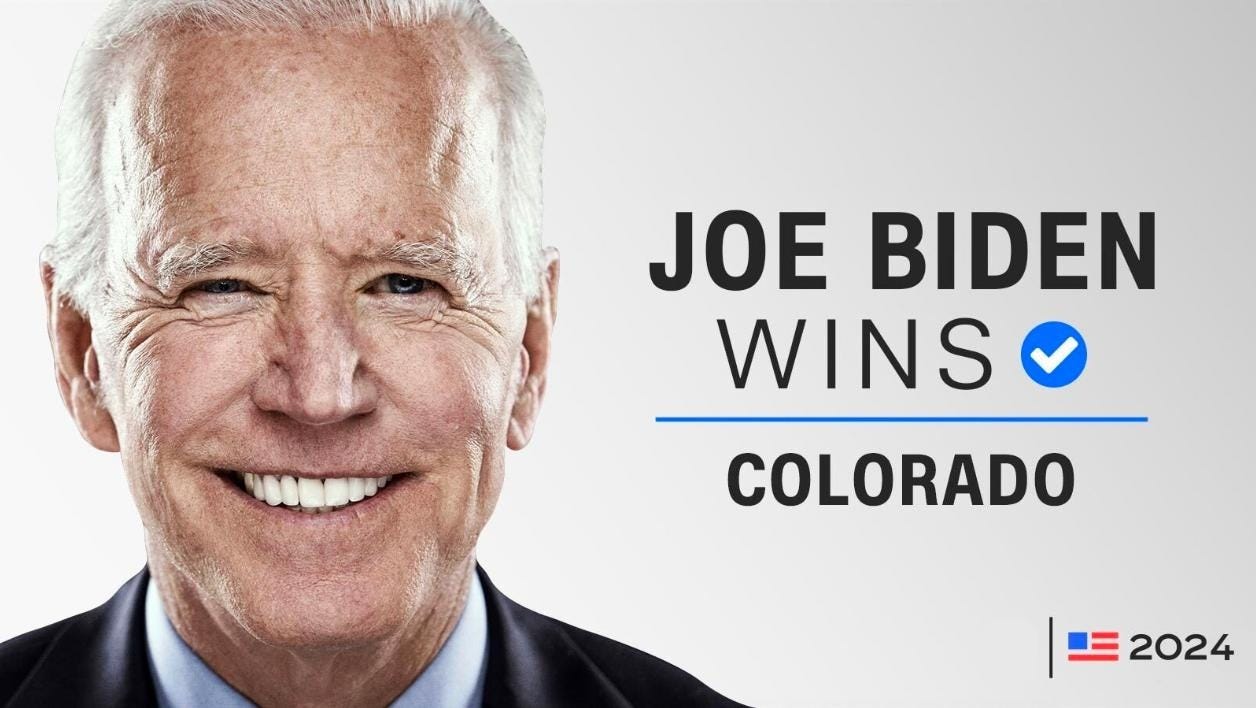Colorado Supreme Court Rule to Remove Trump off Ballot for 2024 Presidential Election
The Colorado Supreme Court ruled Tuesday that former President Trump is disqualified from holding the presidency under the Constitution's so-called insurrection clause. But the issue divided the seven justices — all of whom were appointed by Democratic governors. Colorado’s highest court overturned a ruling from a district court judge who found that Trump incited an insurrection for his role in the Jan. 6, 2021, attack on the Capitol, but said he could not be barred from the ballot because it was unclear that the provision was intended to cover the presidency.
"President Trump did not merely incite the insurrection," the court wrote in the 4-to-3 ruling. "Even when the siege on the Capitol was fully underway, he continued to support it by repeatedly demanding that Vice President [Mike] Pence refuse to perform his constitutional duty and by calling Senators to persuade them to stop the counting of electoral votes. These actions constituted overt, voluntary, and direct participation in the insurrection."
The court issued several findings in its decision, including:
The Jan. 6, 2021, riot was an an insurrection
Trump "engaged in" an insurrection
Trump's speech "inciting the crowd" before the riot was "not protected by the First Amendment"
Colorado law allows voters to challenge Trump's eligibility under the insurrectionist clause
The clause can be enforced without action from Congress
The clause applies to the presidency
Can Trump appeal?
The Trump campaign called the decision "completely flawed" and said it will "swiftly" appeal the ruling.
"We have full confidence that the U.S. Supreme Court will quickly rule in our favor," Trump campaign spokesman Steven Cheung said in a statement.
David Becker, CBS News election law contributor, said it's not mandatory that the Supreme Court take this case, but "it's almost a 100% likelihood that they will take on this case."
Does it apply to other states?
Anti-Trump plaintiffs have brought the insurrectionist clause argument to keep Trump off the ballot to courts in several states.
The Colorado ruling does not apply to other states, though it could embolden others to take action. Colorado, which leans Democrat, is not a competitive state for Trump in the general election. However, if Trump were to be disqualified from the ballot in a swing state, it would put Republicans at a massive disadvantage.
The Colorado ruling stands in contrast with several recent legal decisions on the matter.
Last month, a Minnesota Supreme Court decision said the state party can put anyone on its primary ballot. But the court said petitioners could try again in the context of the general election.
In Michigan, court of appeals decided that it won't stop Trump from appearing on the state's 2024 Republican primary ballot. The court affirmed two lower court rulings, without determining whether the insurrection clause applied to Trump.
"Who to place on the primary ballot is determined by the political parties and the individual candidates," the appeals court said in a 3-0 opinion, citing Michigan law.
Trump Campaign Spokesmen on the ruling:


